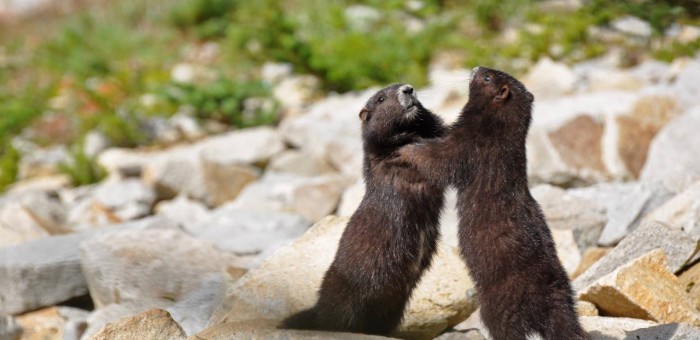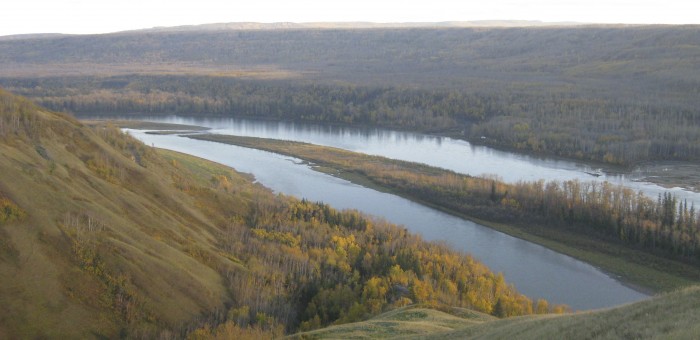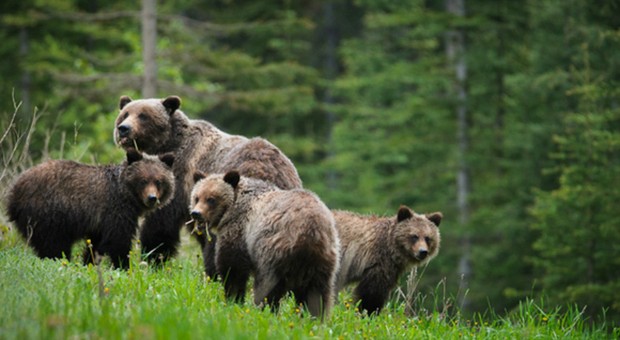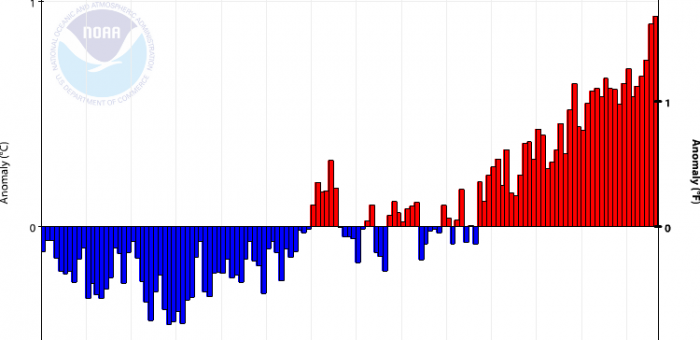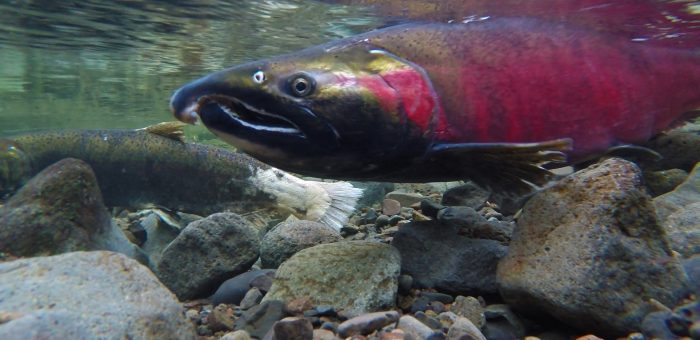Environment
Reintroducing endangered species legislation for British Columbia
Today in the legislature I reintroduced a private member’s bill entitled Bill M208 — Endangered Species Act, 2017. This Act builds off the Ontario Endangered Species Act and the B.C. version of their legislation tabled by the BC NDP in 2011. My office was grateful to work with the late Gwen Barlee from the Wilderness Committee and environmental lawyer Sean Nixon from EcoJustice to close loopholes and make the bill more proactive and preventative. We also incorporated language from the United States Federal Endangered Species Act to make it more effective and comprehensive. Of note is the addition of a section that mirrors the US Endangered Species Committee.
Below I reproduce the text and video of the speech I gave as I introduced the bill. I also include the accompanying media release.
Video of Introduction
Text of Introduction
I move that a bill intituled Endangered Species Act, 2017, of which notice has been given in my name on the order paper, be introduced and read a first time now.
As the 23rd conference of parties to the United Nations framework convention on climate change meets in Bonn, Germany, I’m reminded that the world is in the midst of the sixth great global extinction event and that this time humans are the driving force. British Columbia is the most bio-diverse province in Canada, but it is also home to more at-risk species than any other province. Half of British Columbia’s assessed species are deemed at risk.
In addition to identifying, protecting and rehabilitating at-risk wildlife populations and habitats, this act seeks to introduce proactive measures that will prevent healthy species from declining in the first place. This act builds off the Ontario Endangered Species Act, the B.C. version of their legislation, tabled by the B.C. NDP in 2011 and the American federal Endangered Species Act.
Under the guidance of lawyers and advocates, who have worked tirelessly on this issue, in particular the late Gwen Barlee, who I will forever be indebted to for her assistance on this, we were able to close a number of problematic loopholes and make this act more proactive, transparent and effective than the aforementioned acts.
Of note is the addition of a section that changes how exemptions are made. Instead of being left to the discretion of the minister, under this section, if the government or industry want to take actions that will result in a species going extinct, it is required to go through an independent, publicly disclosed board review.
Mr. Speaker: The question is first reading of the bill.
Motion approved.
A. Weaver: I now move that the bill be placed on the orders of the day for second reading at the next sitting of the House after today.
Bill 17, Endangered Species Act, 2017, introduced, read a first time and ordered to be placed on orders of the day for second reading at the next sitting of the House after today.
Media Release
Weaver introduces bill to protect B.C.’s endangered species
For immediate release
November 6, 2017
VICTORIA, B.C. – Andrew Weaver, leader of the B.C. Green Party, reintroduced his Private Member’s Bill, the Endangered Species Act, 2017. Weaver first introduced the bill in February 2017 under the previous B.C. Liberal government. The Act builds off similar legislation introduced in Ontario and tabled by the B.C. NDP in 2011, and was further developed with the input of Gwen Barlee from the Wilderness Committee and environmental lawyer Sean Nixon from EcoJustice.
“I am re-introducing this bill to ensure that this issue stays at the top of the government’s priorities,” said Weaver.
“It is time British Columbia joined the vast majority of Canadian provinces and introduce its own made-in-BC legislation to protect our province’s endangered species. This legislation was developed in consultation with some of our province’s leading experts on this subject, including the late Gwen Barlee, to whom i will be ever grateful for her assistance and commitment to this cause. This legislation contains a number of ways to close problematic loopholes, as well as to incorporate some of the best ideas from other jurisdictions, which I urge the government to include when it introduces its own endangered species legislation as promised next year.
“The world is in the midst of an extinction crisis, and humans are the driving force. British Columbia is the most biodiverse province in Canada, but it is also the home to more at-risk species than any other province. Half of British Columbia’s assessed species are deemed at risk.
“British Columbians know we cannot put a price on the value this unparalleled biodiversity provides. We owe it to future generations to ensure that we are doing all we can to protect species at risk of extinction.”
In addition to the provisions of the Ontario Act and the legislation tabled by the BC NDP in 2011, Weaver’s bill incorporates language from the United State Federal Endangered Species Act to make it more effective, proactive, preventative and comprehensive. Of note is the addition of a section that mirrors the US Endangered Species Committee, a committee of cabinet-level members who have the sole authority to issue exemptions to the Endangered Species Act.
-30-
Media contact
Jillian Oliver, Press Secretary
+1 778-650-0597 | jillian.oliver@leg.bc.ca
BCUC report puts final nail in Site C’s coffin
The long awaited British Columbia Utilities Commission Inquiry Respecting Site C was released today. I am absolutely thrilled with the thorough and comprehensive analysis that was undertaken. The report reaffirms the position that the BC Greens and I have taken on this project for the last five years.
As noted in the report’s Executive Summary:
-
“The BCUC is not persuaded that the Site C project will remain on schedule for a November 2024 in-service date. The Panel also finds that the project is not within the proposed budget of $8.335 billion. Currently, completion costs may be in excess of $10 billion.”
-
“The Panel finds the least attractive of the three scenarios is to suspend and restart the project in 2024. The suspension and restart scenario adds at least an estimated $3.6 billion to final costs and is by far the most expensive of the three scenarios. In addition, the Panel considers it the most risky scenario because, among other things, environmental permits will expire and that will require new applications and approvals.”
-
“The Panel finds the Site C termination and remediation costs to be approximately $1.8 billion, in addition to the costs of finding alternative energy sources to meet demand.”
- “The Panel finds BC Hydro’s mid load forecast to be excessively optimistic and considers it more appropriate to use the low load forecast in making our applicable findings as required by the OIC. In addition, the Panel is of the view that there are risks that could result in demand being less than the low case.”
- “The Panel believes increasingly viable alternative energy sources such as wind, geothermal and industrial curtailment could provide similar benefits to ratepayers as the Site C project with an equal or lower Unit Energy Cost.”
It is now up to the BC NDP cabinet to decide upon the fate of Site C. Armed with the BCUC report, it would be fiscally reckless to proceed with construction. The BC Greens will remain vigilant on this file to ensure that the BC NDP make the evidence-based decision to cancel the project.
Cancelling Site C will now take real leadership. I hope that the BC NDP will seize the incredible opportunity that has presented itself to develop a 21st Century vision for the future of energy in this province.
Below I reproduce the media statement that I issued on the report.
Media Statement
Weaver statement on BCUC Site C Report
For immediate release
November 1, 2017
VICTORIA, B.C. – Andrew Weaver, leader of the B.C. Green Party, issued the following statement in response to BCUC’s release of the Site C report.
“I am pleased that BCUC’s comprehensive review and insightful report have been completed on time,” said Weaver.
“It is unconscionable that the B.C. Liberals demonstrated such reckless disregard for British Columbians and for sound fiscal management by pushing through such a substantial mega-project without proper due diligence and oversight.
“I am very encouraged that the report indicates that alternative energy sources could provide similar benefits to ratepayers as Site C at an equal or lower cost. I have long argued that the plummeting cost of alternative renewables makes Site C the unequivocal wrong direction for B.C.’s energy future.
“Supporting the development of smaller renewable projects presents a significant economic opportunity for all corners of British Columbia. In recent months our caucus has met with numerous communities across the province who are proposing exciting projects like wind and geothermal that would generate jobs and innovation in their communities using private sector investment rather than billions in taxpayer funds.
“Cancelling Site C will take real leadership. I hope that the B.C. NDP will seize the incredible opportunity before us to develop a 21st Century vision for the future of energy in this province.”
-30-
Media contact
Jillian Oliver, Press Secretary
+1 778-650-0597 | jillian.oliver@leg.bc.ca
Adam Olsen responds to Auditor General’s report on grizzly bear management
In response to the release of of the Auditor General’s report on grizzly bear management today, my colleague, Adam Olsen, the BC Green critic for wildlife policy released the following:
Media Release
Adam Olsen responds to Auditor General’s report on grizzly bear management, calls for moratorium by bringing hunting tags to zero
For Immediate Release
October 24, 2017
VICTORIA, B.C. – Adam Olsen, the B.C. Green caucus spokesperson for Forestry, Lands and Natural Resource Operations (FLNRO), responded to the Auditor General’s report, An Independent Audit of Grizzly Bear Management, which was released earlier today.
“I am very concerned that the auditor general has found that the Ministries’ have failed to properly manage B.C.’s grizzly population,” Olsen said.
“These findings demonstrate the urgent need to develop a comprehensive approach to ensuring the health of grizzlies. We need to improve the coordination between the two ministries managing this file and prioritize transparency. Although the trophy hunt has received much high-profile attention, B.C.’s grizzlies face many other threats including habitat and food source loss due to human activity and, increasingly, the encroaching effects of climate change.
“Today, as an initial step, I am calling for a moratorium on grizzly bear by bringing hunting tags to down to zero while we take the time to review our wildlife management practices and plan for a landscape altered by climate change.
“As legislators, our job is to look for feasible solutions to the issues that matter to British Columbians. Under the previous Liberal government, which actively supported the grizzly bear trophy hunt, my colleague Andrew Weaver worked hard to advance legislation that would ban the trophy hunt while protecting rights for local sustenance hunters and First Nations traditional practices. Now, with a party in government that has opposed the grizzly bear trophy hunt supported by the B.C. Greens, we have an opportunity to move the dial even farther on measures that will protect our province’s grizzly bears.”
-30-
Media contact
Jillian Oliver, Press Secretary
+1 778-650-0597 | jillian.oliver@leg.bc.ca
BC government’s climate solutions & clean growth advisory council
Today the BC Government announced the creation of the Climate Solutions and Clean Growth Advisory Council. This new council will provide government with advice on actions that lead to greenhouse gas emission reductions while at the same time positioning British Columbia as a leader in the emerging 21st century economy. In recognition that it is the provincial Climate Action Secretariat that ultimately must develop provincial policy, the Council will also serve as an important sounding board/advisory group to inform and provide feedback on government’s climate policies.
I am very pleased with the formation of this new council and its tightened mandate. Below I reproduce the media release.
Media Statement
Andrew Weaver welcomes appointment of Climate Solutions and Clean Growth Advisory Council
For immediate release
October 23, 2017
VICTORIA, B.C. – Andrew Weaver, leader of the B.C. Green Party, welcomed the government’s appointment of the Climate Solutions and Clean Growth Advisory Council today.
“I commend Minister Heyman on convening this excellent and diverse group of British Columbians that will help make B.C. a leader in climate action once again,” Weaver said.
“Both our caucuses have committed to implementing a climate action strategy that will meet our targets. This advisory council will provide valuable high level advice on how we can keep our climate commitments while ensuring that B.C.’s economy remains strong and its people able to thrive.
“Our province is already feeling the effects of climate change, but the risks of inaction to the next generation are even greater. We owe it to them to build a future that is full of promise and opportunity. We have set the targets that we must achieve in order to ensure intergenerational equity with respect to mitigating the effects of climate change. We now must develop an actionable strategy to achieve these targets. The B.C. Green caucus looks forward to working with the government on a climate action strategy to ensure we keep our promise to the next generation.”
-30-
Media contact
Jillian Oliver, Press Secretary
+1 778-650-0597 | jillian.oliver@leg.bc.ca
Sonia Furstenau presses Premier on wild salmon habitat protection
Today in the legislature my colleague, Sonia Furstenau, expanded upon our efforts in Question Period to pressure the BC Government to get open net fish farms out of the migratory paths of wild salmon. Below I reproduce her exchange with the Premier as well as our accompanying press release.
Video of Exchange
Media Release
Sonia Furstenau presses Premier on wild salmon habitat protection
For immediate release
October 17, 2017
VICTORIA, B.C. – Sonia Furstenau, MLA for Cowichan Valley, pressed Premier Horgan on his government’s plans to protect wild salmon habitat in B.C. during question period today.
“Wild salmon are tremendously important to Northern and coastal communities, said Furstenau.
“Wild salmon in the Skeena River alone generate $110 million per year, and our sport fishing industry is produces revenues of $925 million and 8,400 direct jobs. But in 2009, the decline in the wild salmon run in the Fraser River was so severe it was classified as a catastrophic collapse. This year, salmon levels in the Fraser are approaching those same levels.
“Protecting our wild salmon stocks will require significant investment in habitat restoration. Will the Premier commit to meeting with Prime Minister Trudeau to advocate for the protection of our wild salmon stocks and to establish a joint provincial-federal strategy to phase out fish farms on migratory routes?”
The Premier responded that his government is committed to protecting B.C. wild salmon stocks, and that he will work with all levels of government and Indigenous leaders to ensure their protection.
As part of their role in opposition, the B.C. Green caucus members will continue to hold the government to account on its commitment to protect B.C.’s wild salmon, including its promise to phase out salmon farms along wild salmon migratory routes.
-30-
Media contact
Jillian Oliver, Press Secretary
+1 778-650-0597 | jillian.oliver@leg.bc.ca
Jillian Oliver
Press Secretary
BC Green caucus
c. 778-650-0597
o. 250-387-3094
e. jillian.oliver@leg.bc.ca
Question
S. Furstenau: Wild salmon are tremendously important to coastal and northern communities. As the mayor of Smithers states: “It’s a wild salmon economy here.” The Skeena River alone generates up to $110 million per year, while sports fishing in B.C. produced revenues of $925 million, contributing $325 million to B.C.’s GDP and 8,400 direct jobs.
In a 2013 article, the MLA from Stikine valley, now the Minister of Forests, Lands and Natural Resources and Northern Development, was quoted, saying “wild salmon habitat deserves local, regional, provincial, national and global protection because there is nothing like it remaining in the world.”
My question is to the Premier. Saving B.C.’s wild salmon will require a massive investment in habitat restoration. Is your government prepared to make this investment, particularly given the crucial role that wild salmon plays in B.C.’s economy?
Answer
Hon. J. Horgan: I thank the member for her question. We had some questions yesterday around salmon in British Columbia, and I’m delighted to focus on wild salmon, wild pacific salmon, which are the lifeblood of many communities, as the member said.
In my own community of Langford–Juan de Fuca, fishing in Sooke and Port Renfrew is a vital part of the economy that we see, certainly, during the summer. I had the good fortune of being on the San Juan River with the Pacheedaht First Nation to observe their food fishery, not seven days ago. The power of salmon is in all of us, and I think that every member of this House would agree.
With respect to the question about salmon restoration, certainly, upstream is the responsibility of the provincial government. We need to make sure that we are rehabilitating streams after logging practices — some good, some bad. But we also have to make sure that we’re working with partners.
The member for Skeena raised some questions yesterday with respect to Indigenous people and what their relationship is with salmon. We need to make sure the federal government is at the table with dollars to make sure that they’re meeting their obligations as well.
I’d also say that I think all members, if you’re not aware of the important salmon enhancement work that’s being done up and down the coast to bring more salmon into play, not just for food fishery, not just for commercial and sport fisheries but for orcas and other mammals that depend on the salmon….
I think that we can all do well, when the estimates for the member for Stikine and the minister responsible for Agriculture come up, to embrace and support the notion of salmon enhancement and making sure that we’re doing restoration in our streambeds.
Supplemental Question
S. Furstenau: In 2009, the Fraser River sockeye return was so low, it was regarded as a catastrophic collapse. The Cohen Commission of Inquiry into the Decline of Sockeye Salmon in the Fraser River was launched. Three years later it produced 75 recommendations on how we could restore and protect wild salmon. At the time, Justice Cohen stated: “salmon farms should not be permitted to operate unless it is clear they pose no more than a minimal risk to the Fraser River sockeye salmon.”
This year the Fraser River sockeye are returning at nearly the same catastrophically low levels as in 2009. We are in an emergency. My question is to the Premier.
I appreciate you recognizing the need to work with the federal government.
Will the Premier meet with Prime Minister Trudeau to actively advocate for B.C.’s wild salmon and establish a coordinated, provincial-federal strategy to responsibly phase out open-net fish farms on migratory routes?
Answer
Hon. J. Horgan: I thank the member again for her question.
The Minister of Agriculture met with the Minister of Fisheries just last week to raise the issues of open-net-pen fish farms in migratory routes, which is counter to the recommendations of Cohen.
Cohen has been endorsed, I believe, by the members on the other side as well as the current federal government and the government of the day here in British Columbia. It’s my view that we need to make sure that we’re working with all of the stakeholders, as articulated by the member for Skeena yesterday.
This issue didn’t arrive yesterday. The member has given us an historical note back to 2009 and the beginning of the Cohen investigation. But we’ve had challenges with wild fish and the integration with Atlantics, or invasive species in the minds of some, for some 25 to 30 years.
This issue will not solved be overnight. But I commit to this member and all members of this House and all British Columbians that wild salmon are paramount on this side and, I believe, throughout this Legislature. I’m going to do my level best to work with every level of government and all Indigenous people to protect wild salmon.

